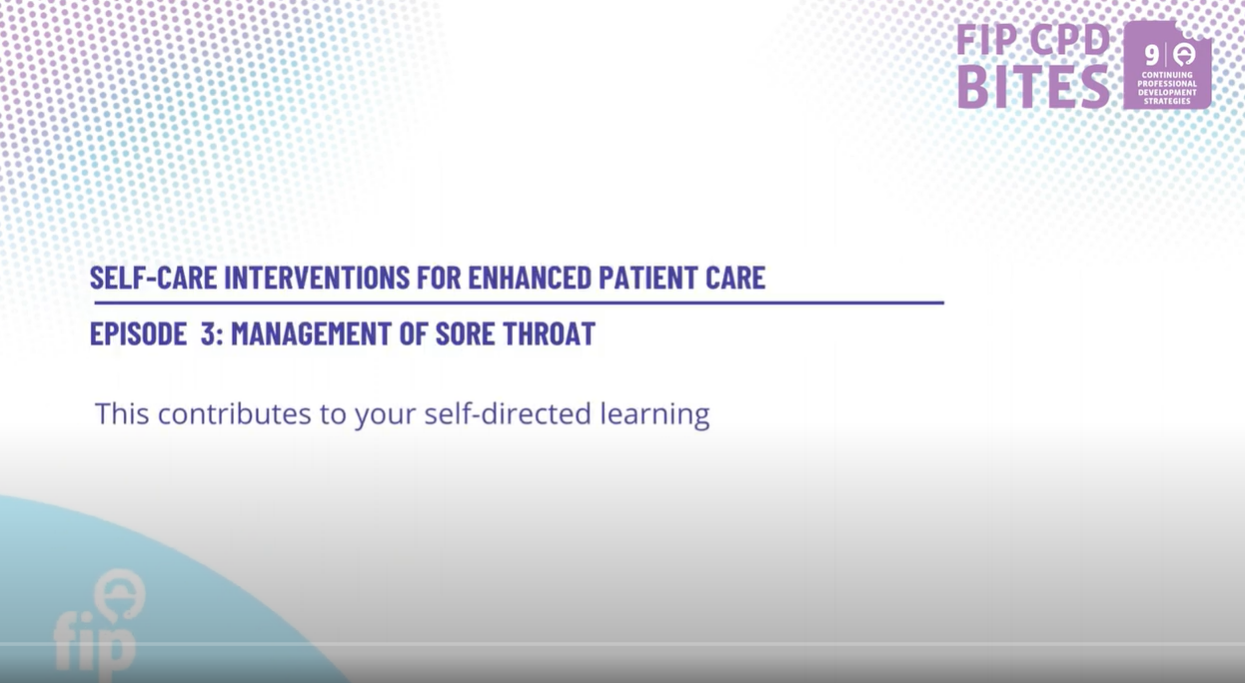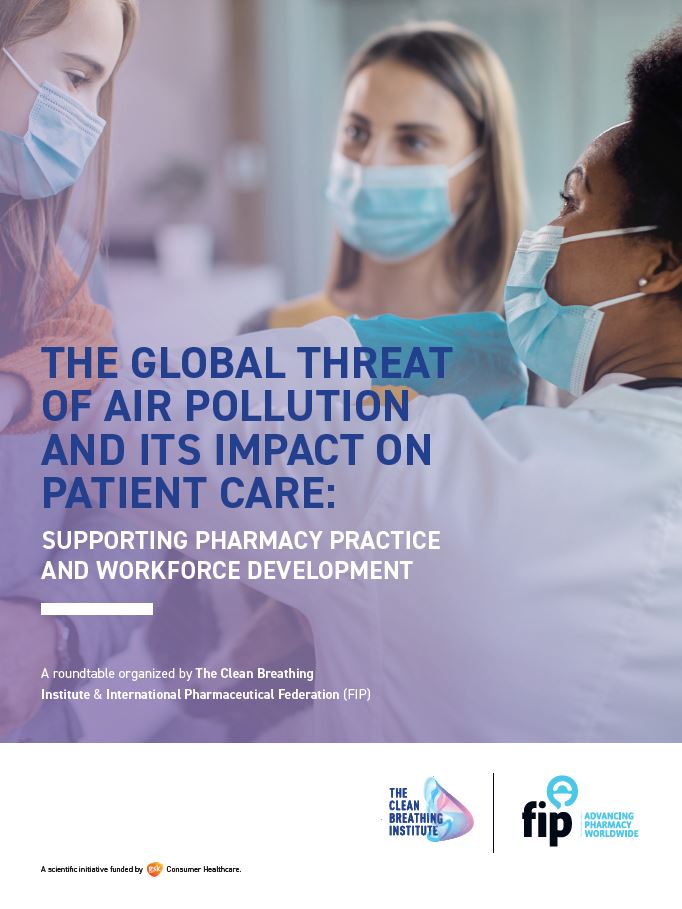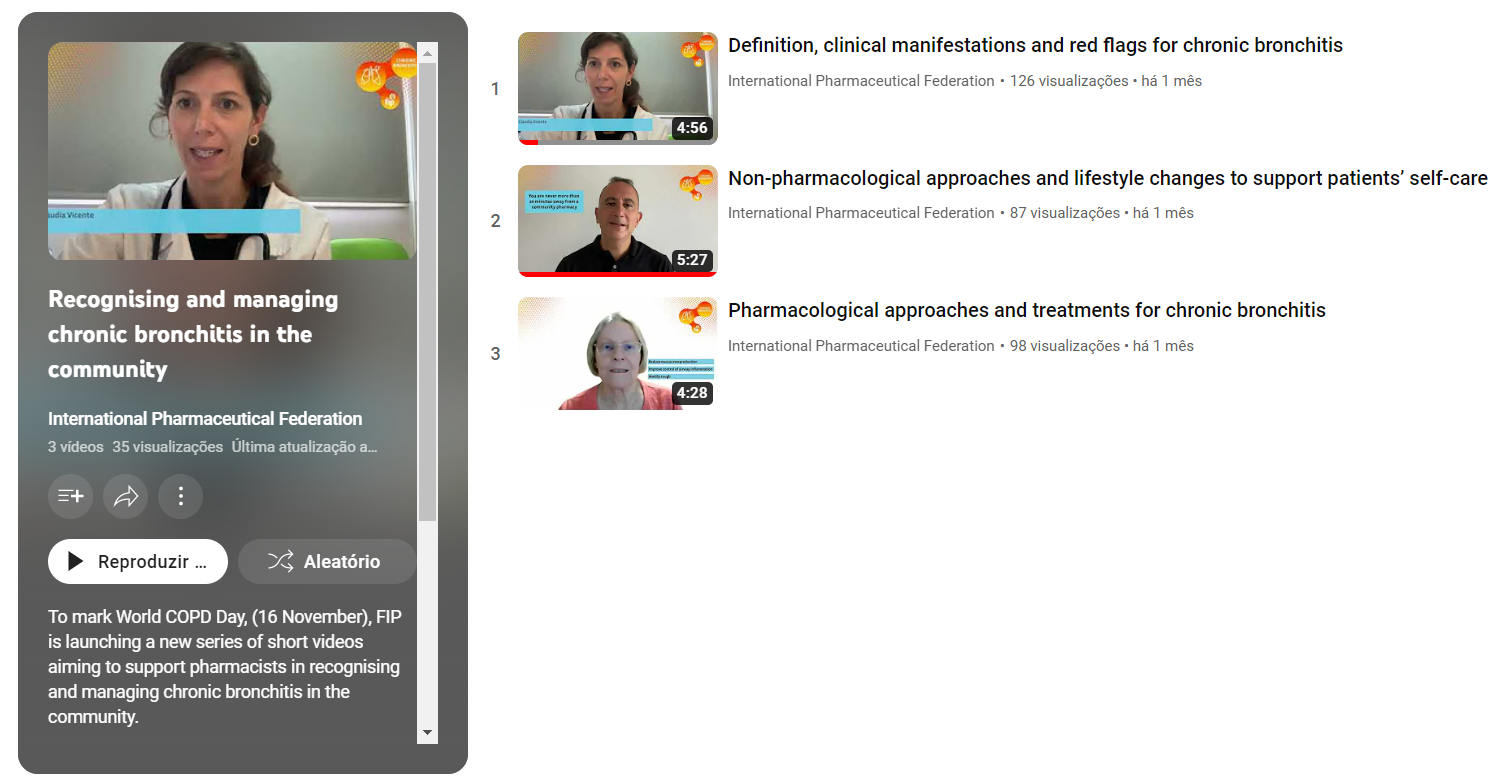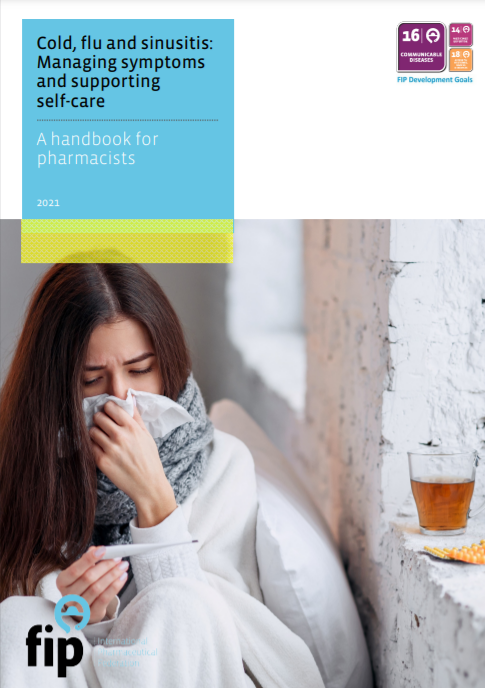You may find below the FIP publications focusing on respiratory health

Publications on respiratory health

Self-care interventions for enhanced patient care: management of sore throats
This episode underscores the significance of self-care in sore throat, showcasing the pivotal role of pharmacists. You will learn about sore throats, differentiate between sore throat and tonsillitis, sore throat self-management, examine antibiotic usage, and pharmacists' contributions to enhancing patient self-care for improved respiratory well-being.

Mitigating the impact of air pollution on health: The role of community pharmacists - Global survey report
In 2019, the World Health Organization (WHO) listed air pollution and climate change as one of the top 10 threats to global health. According to the WHO, air pollution is the greatest environmental risk to health, with nine out of 10 people breathing polluted air every day. Between May and June 2020, FIP conducted the first-ever survey on “Air pollution and respiratory health: Awareness and roles of community pharmacists”. Responses were received from 62 countries and territories. FIP conducted this survey with the aims of better understanding pharmacists’ awareness of the impact of air pollution on respiratory health, their current role in respiratory care, and what are the main barriers and drivers for them to fully realise this role, such as gaps in knowledge, tools and other resources, including the availability of guidelines. The data and intelligence emerging from this survey may inform policymaking, advocacy efforts and new service development by pharmacist organisations around the world.

The global threat of air pollution and its impact on patient care: Supporting pharmacy practice and workforce development
This reports the outcomes of a roundtable organized by The Clean Breathing Institute & International Pharmaceutical Federation (FIP).

Videos: Recognising and managing chronic bronchitis in the community
To mark World COPD Day, (16 November), FIP is launching a new series of short videos aiming to support pharmacists in recognising and managing chronic bronchitis in the community. Chronic bronchitis is included under the umbrella term COPD (chronic obstructive pulmonary disease), and has numerous clinical consequences, such as predisposition to lower respiratory tract infections, accelerated decline in lung function, and decreased health-related quality of life. Chronic bronchitis can be common and can go unrecognised and undiagnosed at the early stages. Identification, advice, management and referral are all ways in which pharmacists can play a role.

Cold, flu and sinusitis: Managing symptoms and supporting self-care. A handbook for pharmacists
Pharmacists are embedded key players in the health landscape of their communities and are trusted for patient-centred, comprehensive, timely advice. The accessibility of pharmacy means that the knowledge and skills of community pharmacists are extensively sought by everyone from teenagers to new parents, to older adults and everyone in between. This handbook will further strengthen their essential role within the community to provide optimal patient care and support informed self-care. This publication serves as a ready-to-use reference document covering different aspects of the management of common URTIs in the community setting. Throughout the various sections, guidelines, algorithms and summary tables, this handbook is meant to support pharmacists in promoting respiratory well-being, developing a thorough understanding of commonly encountered URTIs, and navigating through both nonpharmacological and pharmacological management options.
